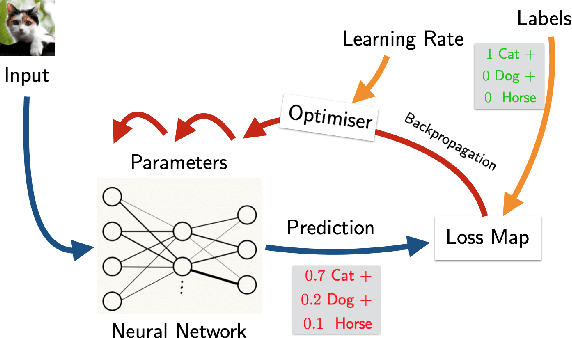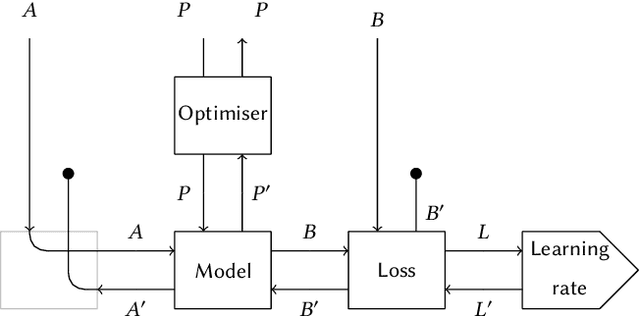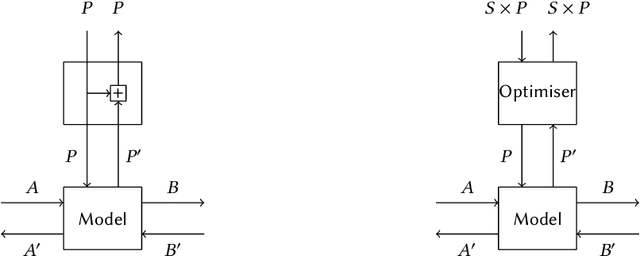Neil Ghani
Deep Learning with Parametric Lenses
Mar 30, 2024Abstract:We propose a categorical semantics for machine learning algorithms in terms of lenses, parametric maps, and reverse derivative categories. This foundation provides a powerful explanatory and unifying framework: it encompasses a variety of gradient descent algorithms such as ADAM, AdaGrad, and Nesterov momentum, as well as a variety of loss functions such as MSE and Softmax cross-entropy, and different architectures, shedding new light on their similarities and differences. Furthermore, our approach to learning has examples generalising beyond the familiar continuous domains (modelled in categories of smooth maps) and can be realised in the discrete setting of Boolean and polynomial circuits. We demonstrate the practical significance of our framework with an implementation in Python.
Categorical Foundations of Gradient-Based Learning
Mar 02, 2021



Abstract:We propose a categorical foundation of gradient-based machine learning algorithms in terms of lenses, parametrised maps, and reverse derivative categories. This foundation provides a powerful explanatory and unifying framework: it encompasses a variety of gradient descent algorithms such as ADAM, AdaGrad, and Nesterov momentum, as well as a variety of loss functions such as as MSE and Softmax cross-entropy, shedding new light on their similarities and differences. Our approach also generalises beyond neural networks (modelled in categories of smooth maps), accounting for other structures relevant to gradient-based learning such as boolean circuits. Finally, we also develop a novel implementation of gradient-based learning in Python, informed by the principles introduced by our framework.
 Add to Chrome
Add to Chrome Add to Firefox
Add to Firefox Add to Edge
Add to Edge